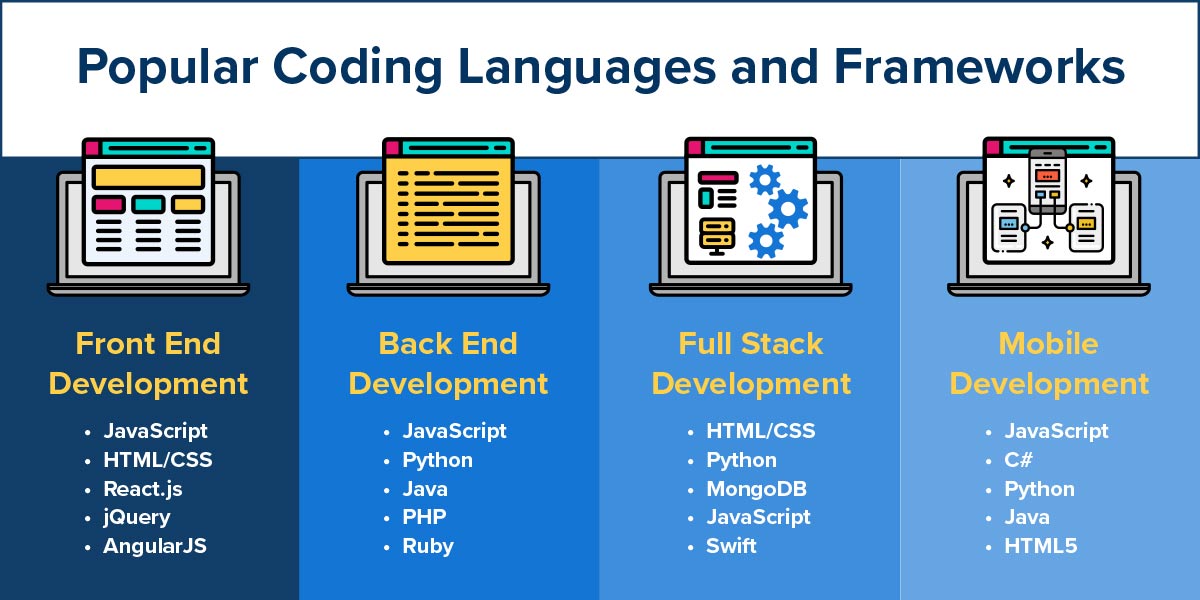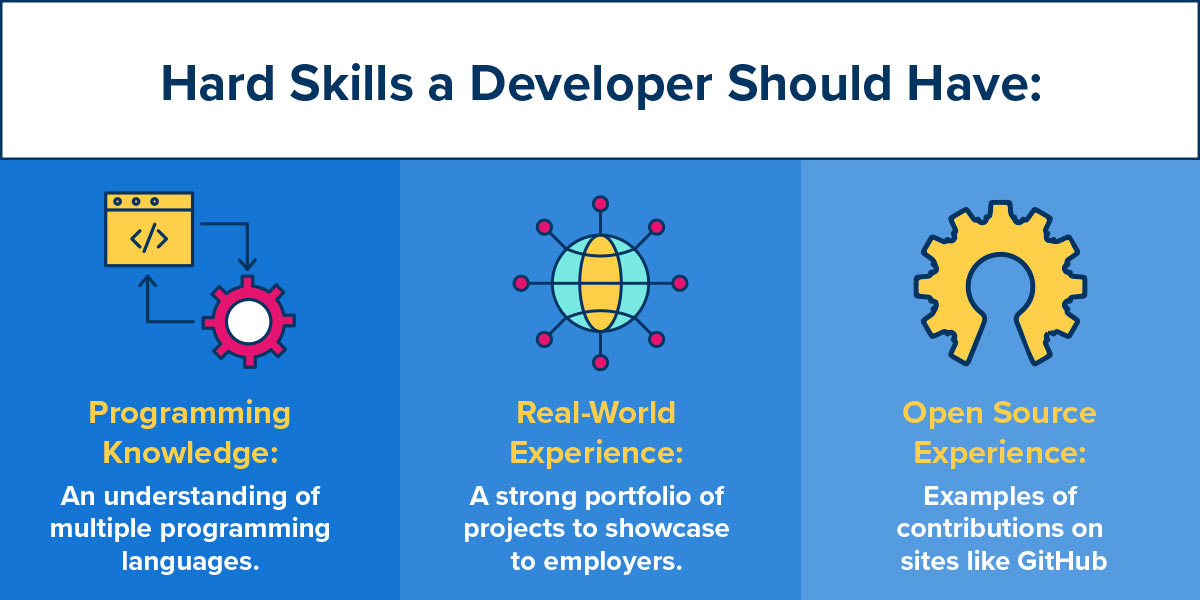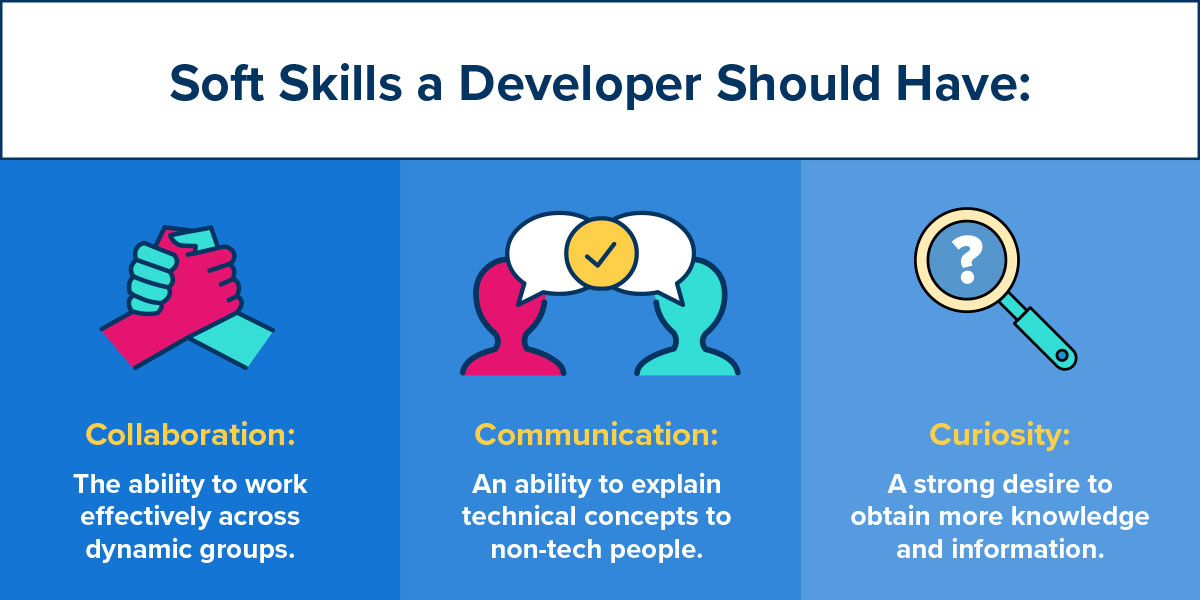Guide to a Coding Career: Tips from HBO’s Brian Ho and Venmo’s Mustafa Shikora

There has been a rapid expansion in web development over the last decade, and this trend is projected to continue. With a projected growth rate of 20 percent or more, new web developers can expect a thriving career market. There are also many options for building your own unique niche in the development market.
When considering a web development career, it is a good idea to narrow your focus. The languages and specialties you choose can ultimately affect your individual career path. You do not need to know what you want to do exactly, but you should have an idea.
To help you with this, Trilogy Education Services, a 2U, Inc. brand, recently hosted a Coding 101 Tech Talk to discuss coding careers. 2U’s Alison Abbington moderated a discussion between seasoned software engineers Brian Ho (HBO) and Mustafa Shikora (Venmo) to discuss the different types of coding, popular coding languages, and more.
Below are some key takeaways from the event, as well free coding-related resources recommended by the panelists.
The difference between front end, back end, full stack, and mobile development
According to Shikora, there is no clear path to web development since there are lots of programming approaches one can practice. The road to web development can seem complicated at first, but as you begin to map out your preferred coding development path, there are some options to consider:
- Front End Development: Typically, this area deals with the client-facing aspects of a website or product. Front end developers typically work with the design of a product and its functionality, as well as ensuring its content is easily understood.
- Back End Development: This area includes all aspects of the server-side that the average user does not see. Back end developers define and implement the code and perform database management that enables programs to function as intended.
- Full Stack Development: Involves both the front and back ends of web applications. These developers are experts in both designing and developing the front and back ends of websites and applications.
- Mobile Development: Refers to the development of software specifically used for mobile devices, including smartphones and tablets. These developers are responsible for designing mobile applications, as well as restructuring interfaces to fit a mobile format.
What coding languages should I learn?
Coding languages are constantly evolving, with new ones emerging all the time. In fact, there are approximately 700 programming languages in existence today, according to the University of the Potomac. Depending on which development path you choose, you will want to choose a programming language that adds the most value, say Ho and Shikora.
For example, if you intend to become a mobile developer, pay particular attention to popular languages used in Android app programming or iPhone application development. However, if you want to pursue front-end, back-end, or full stack development, you can choose in-demand languages for those specialties.
While every programming language and framework can prove useful in some aspects, not all of them are suitable for your needs. That’s why we decided to create a list to help you identify which to learn based on your intended career path.
Popular Coding Languages and Frameworks:

What skills are employers seeking?
Besides learning the latest languages and frameworks, a developer must have the ability to tie them together to solve a problem, says Ho. To do this, developers must possess a combination of hard and soft skills enabling them to thrive in their role while contributing to the team. Below, we have outlined examples of hard and soft skills that can help you stand out to employers.
Hard skills
These skills are related to specific professional qualities that are taught through instruction and training. They may include professional abilities needed for the tasks an employer expects employees to perform. These skills can often be defined, measured, and evaluated.

Soft skills
Usually, soft skills are not taught, but rather occur naturally due to an employee’s emotional intelligence and life experience. Also referred to as interpersonal skills, personal skills, or people skills, these skills enable people to work effectively with others and have gained significant importance in the workplace.

How to get started
Did you know that completing a coding boot camp can help prepare you for a variety of roles in this rapidly growing field? If you’re willing to put in the hard work, a boot camp is a great way to help you learn many of the skills, languages, and frameworks outlined above.
Are you ready to start your own coding journey? Visit Rice University Coding Boot Camp Page to discover how you can gain the fundamentals to work in the field.
You can learn key programming skills for front end, back end, or full stack web development — all while preparing you for success in the professional world. You can also walk away with an impressive portfolio that may help you stand out to employers.
Free Coding resources: Top picks from the panel
You may find these resources provided by Shikora and Ho helpful if you want to learn more about coding.
CodeWars :This community-created online platform can help you practice code challenges which they call “kata”. These are split up by difficulty, making them a great resource for beginners.
GitHub: Shikora recommended GitHub as a great place to find beginner-friendly projects. He recommends searching for keywords related to your specific learning path (i.e., languages and frameworks).
HackerRank: You can join over 11 million other developers to practice coding skills, prepare for interviews, compete in challenges, and more. These can really help if you’re preparing for an interview, says Ho.
Don’t forget to connect with our panelists on LinkedIn. You can explore their profiles below.
Brian Ho: Brian is Senior Software Engineer with seven years of experience working from front end to back end, websites to apps, and APIs. He is currently a Senior Software Engineer for HBO, where he helped launch services like HBO Max.
Mustafa Shikora: Mustafa is currently working as a Software Engineer at Venmo where he helps the back end teams create a frictionless experience in the payments world. Before joining Venmo, he served as a Software Development Engineer at Amazon.

 Live Chat
Live Chat